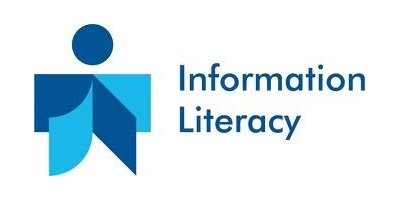Rebecca Mogg and Cathie Jackson offer their thoughts on the Welsh Information Literacy Project Closing Conference, which took place on Thursday, 26th March, 2015 at Glyndŵr University in Wrexham.
This one-day event at Glyndwr University celebrated the achievements of the Welsh Information Literacy Project (WILP) as its funded work comes to a close.
The importance of cross-sector collaboration
Nancy Graham, the outgoing Chair of the CILIP Information Literacy Group, opened the conference with a keynote on the subject of collaboration. Nancy stressed the importance and value of looking for collaboration outside our own sectors and gave tips on how to do this, such as joining mailing lists for different sectors, attending cross-sectoral events and getting involved in CILIP groups. Nancy congratulated the project team for their achievements in getting government support and funding, succeeding in true cross-sectoral collaboration and establishing the information literacy framework, together with accredited units.
After a brief overview of the project’s achievements from Andrew Eynon, WILP Project Manager, Anne Lewis from Agored Cymru highlighted the influence that the information literacy units have had on the current digital literacy agenda in Wales. She noted the impact the project has had on those who have participated in the units, even if they didn’t then go on to apply for assessment.
Information literacy in the community: case studies
 We then heard a range of inspiring case studies outlining how the framework and units have been put into practice in various communities across Wales. Natasha Harron-Edwards described her course with jobseekers in Monmouthshire, who all went on to achieve accreditation. Sarah Deeley from Cymmer Afan community library has used the qualification as a basis for training her volunteer staff. It was interesting to learn how the information literacy units can be used to assist in delivering this kind of library service.
We then heard a range of inspiring case studies outlining how the framework and units have been put into practice in various communities across Wales. Natasha Harron-Edwards described her course with jobseekers in Monmouthshire, who all went on to achieve accreditation. Sarah Deeley from Cymmer Afan community library has used the qualification as a basis for training her volunteer staff. It was interesting to learn how the information literacy units can be used to assist in delivering this kind of library service.
Wendy Jefferson, a youth services worker for Denbighshire County Council, successfully combined the level one information literacy unit with a film-making project. She ran a 10-week course in which the young people engaged in active learning, games and quizzes, and heard from a variety of visiting speakers, such as representatives from the family information services, library, and careers service. They then had to complete a research task and give a presentation on their findings.
Wendy found that that a key barrier to accessing information was young people’s unwillingness to seek help from adults, and so she focused on tasks that would help them gain confidence to do this.
Gina Maddison, from WILP, worked with participants in the Essential Skills Wales qualification at Entry Level 1, and described how she’d tailored the materials and course to suit the needs of this level of learners.
After lunch and a brief overview of the CILIP Information Literacy Group and the Journal of Information Literacy, we learned of three further case studies. Myfanwy Jones has been developing the information literacy of older people by incorporating the WILP materials within a family history course at Abergele Library in Conwy. Aled Rees has been running workshops with front line staff in Gwynedd council, e.g. refuse collectors, teaching assistants, cleaning and ancillary staff, to raise awareness of how to search for and evaluate web information at level 1.
Finally, Sharon Lyn Jones, from WILP, has been working with community groups in north Wales, including Gorwel Women’s Aid Refuge, Digartref Ynys Mon (a homeless charity) and Anglesey Youth Service. At Digartref, they have incorporated information literacy into a ‘Get Started Programme’ for young people, which covers topics such as tenancy skills, health and social well being and employability. The Gorwel staff feel the information literacy training has been so positive that they intend to offer it to all incoming clients. In the Youth Service, 20% of activity must be accredited, and the information literacy units aligned well with the award schemes they operate, such as the Duke of Edinburgh Award, which has a specific skills section.
What next for the Welsh Information Literacy Project?
At the end of the day, Andrew Eynon led a discussion on how the achievements of the project can continue now that the funding has ended. It was agreed that a steering group will continue to meet, at least annually, and that the project will continue to have a presence on the Welsh Libraries website. The CILIP Information Literacy Group will host the resources on their website. New hosts for the sector communities of practice will be found. It has already been agreed that the Society of Chief Librarians Wales and the School Libraries Association will host the public library and schools communities.
It was fantastic to hear stories of the achievements of the project, which began back in 2009, and how many lives have been improved as a result of its work. Although the funding has ended, CyMAL: Museums Archives and Libraries Wales, is still very supportive of the initiative and it is vital that the project’s aspirations continue to be realised. This is an opportunity for the profession to collectively take it forward.
